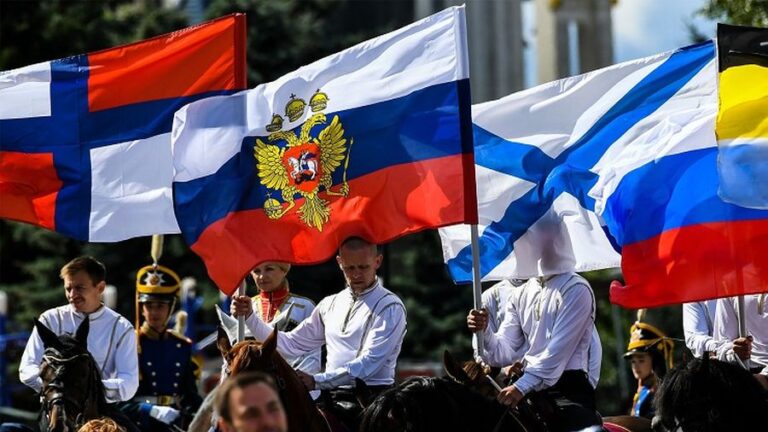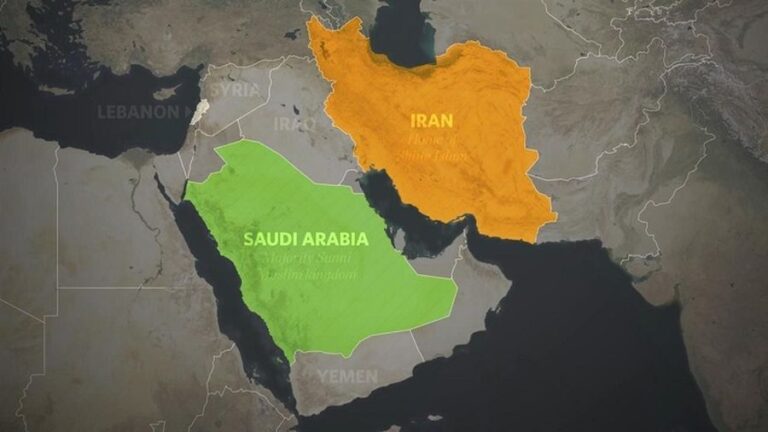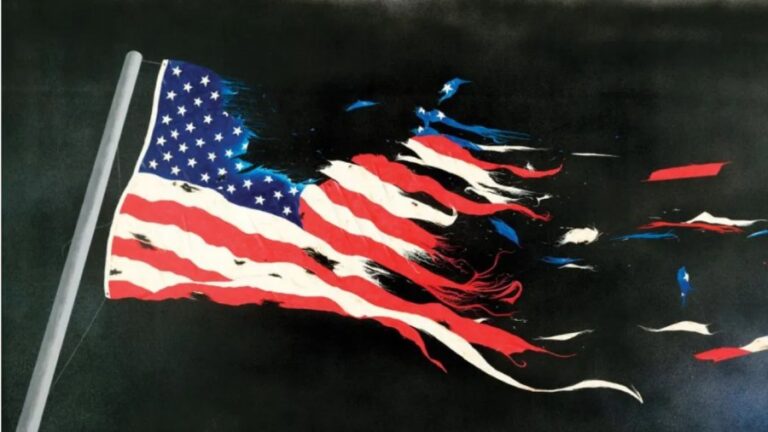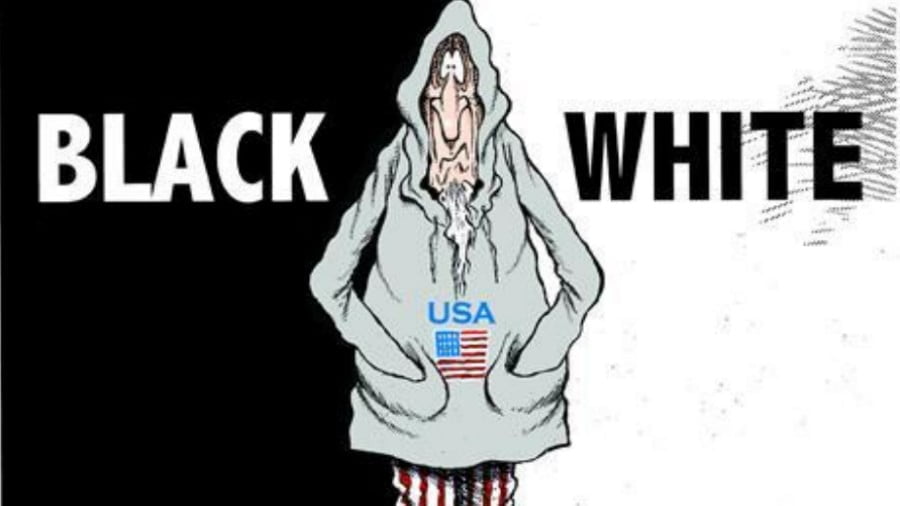Anti-Russian Sanctions: a Middle Eastern Perspective
The Arabic portal “Elaph” has called anti-Russian sanctions the “friendly and bitter fire of the USA in Europe” that has led to negative consequences for the economies of the countries of the Old World. They suffered from them after announcing the rejection of Russian gas, with no clear alternative to replace it.
The portal’s opinion is woven into the flow of comments in the media and social networks of the Middle East about what has been happening in Ukraine since the beginning of the crisis in the country. Local authors are increasingly afraid of the possible toxic impact of these steps, taken bypassing international organizations, particularly the UN, on various aspects of life and the economy of the region.
According to Arab economists, raising the discount rate of the US Federal Reserve system by European banks has had a negative effect on their countries. Among them are the increased debt of Arab countries due to the rising cost of borrowed resources, the flight of capital from the region to the American money market, the depreciation of local currencies, rising unemployment, etc. It also puts a burden on goods imported from abroad and contributes to the impoverishment of ordinary workers.
Per the Arab analyst, the rise in energy prices is provoked by reasons that reflect the contradictory logic of the Western powers. They intend to punish Russia and at the same time want to take advantage of its inexpensive oil. But such a dilemma is almost impossible to solve.
Attempts to politicize the energy dossier are not backed by local oil and gas producers. Until now, states one Algerian newspaper, the Gulf countries have resisted Washington’s pressure to turn up the oil tap for the markets. They proceed from the increased prices not being caused by the actions of suppliers, but by geopolitical interests, the highest taxes in Western countries, and limited volumes of oil refining.
European consumer taxes on imported oil are around 80-100%. They, according to Middle Eastern experts, provide a profitable portion of the budgets for importing countries, which exceeds what Arab oil exporters receive. Therefore, if you lower these taxes, then inflation will slow down.
Western monopolies have lowered their investment in the oil sector under the guise of fighting for a “good environment.” At the same time, they would like to “milk” the Gulf states to increase their investment in the oil and gas industry. But in the region they see that the decarbonization program being carried out in the West is ultimately aimed at the abandonment of fossil fuels. If the Arabs now increase funds for oil production, which will pay off in five or six years, they could lose a lot when Westerners intensify the fight against “global pollution.”
During the pandemic, when there was a sharp drop in hydrocarbon prices, the Americans did not reduce their production, thereby putting Arab oilmen in a difficult position, and this hasn’t been forgotten.
OPEC+ follows a conservative course in order to iron out sharp price fluctuations and spikes on the oil market, to solve problems in sync. It has shown its effectiveness since the beginning of the coronavirus epidemic, allowed countries to strengthen their economies, and provided a sense of confidence in the ability of a group of countries, which along with the nations of OPEC include Russia, to force them to work on the same wavelength, according to the Saudi newspaper “Al Watan”.
Local analysts are wary of the freezing of the assets of Russian entrepreneurs abroad. Because Arab billions are also in the US and other parts of the West in the form of dollars as reserves, investments, etc., their owners, the Arab financial expert warns, must understand that the risks of devaluation or seizure of such assets where they reside are high. This is an experiment by Washington and its allies, taking over other people’s finances, without any legal or moral rights.
Arab media platforms are alarmed by reports of the confiscation of funds from Russian business people who sponsor football clubs in the UK. According to an Egyptian publication, nothing will prevent a similar operation with British clubs, in particular Manchester City and Newcastle United, which are financed by citizens of Saudi Arabia or the Emirates.
In this case, the author argues, one can speak of the law of the jungle, and business people in the Middle East will think long and hard before investing in Europe or the USA in the future.
Moscow today has been able to deactivate the sanctions imposed against it by the West, especially when it comes to hydrocarbons. The exchange rate of the ruble has risen significantly and has not been so strong in the last 10 years, as stated in the Egyptian media. Military operations in Ukraine did not lead to the ruin of the Russian economy, which the Western media and politicians are trying to prove. On the contrary, the importance of the Russian economy has risen in the eyes of public opinion.
Russia remains on its feet, perhaps even stronger than before, in light of the fiasco of Western sanctions philosophy, which for decades has relied on these weapons as a tool, states the Emirati newspaper “Al Bayan”. But against the backdrop of the difficulties experienced by many families in Europe and the USA, Russia, instead of counting losses due to sanctions, is close to turning a profit.
Overall, there is a negative attitude towards anti-Russian sanctions in the Middle East, casting a shadow over the political landscape in the region and the wider world. They ricocheted back at their initiators in the USA and the West. And they’re not averse to shifting their costs to the countries of the developing world, including Arab nations.
The USA and Europe are trying, unsuccessfully, to turn Arabs against Russia, to make them pay the price for the Euro-American adventure in Ukraine. But the latter don’t want to get involved in it for a simple reason: the countries of the Middle East are already overloaded with problems, and even challenges to the domestic political, economic, and other order. Many of them, in one way or another, bear the imprint of the actions of the West.
The events in Ukraine have become an occasion for analysts and experts in the region to look at the situation and the world order more broadly, moving away from the imposed stereotypes about the invincibility and advantage of the West under the leadership of the USA. These clichés are increasingly being questioned and criticized. The Middle East is also extremely perturbed that Western mentors, who for centuries preached to others their rules of the free market and trade, are now violating the most sacred right to private property and competition.
They note that, against the backdrop of the emergence and growth of other poles of power and the development of a “non-Western presence,” China was able to push those competitors out of Europe that were bogged down in problems, temporarily distracted from the economic blockade of Beijing and turned their sights toward confrontation with Russia.
This moved both Beijing and Moscow to cooperate in the field of energy, especially gas, and opened up the prospect of turning economic competition into an alliance of shared interests to benefit one another. Thus, the chances for the two countries to move towards the creation of a new economic order, in which Africa and Latin America will play a part, are expanding.







